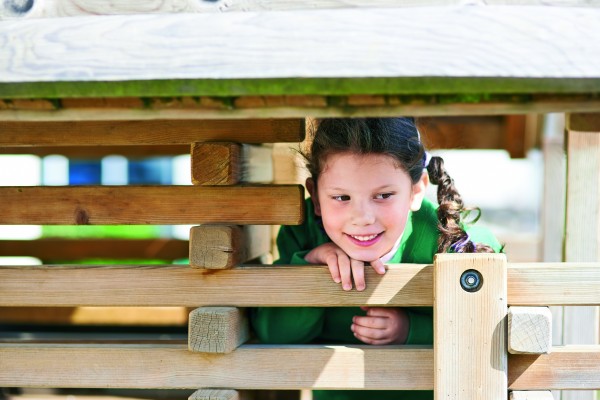Developing Strong Relationships With Home In Early Years Is Essential

Mums and dads need to understand and support your approach in order for children to thrive – so make parents partners

Experience has taught me that if the parents are not on board with your pedagogy, then you’re in for a rough ride – and it’s the children who will suffer.
This is particularly important at Carterhatch Infant School, where our focus on following children’s interests at the expense of adult-led activities can be misunderstood, but it applies to every setting. Parents and staff need to work in partnership to achieve the best outcomes, but how is this partnership achieved?
First steps
Making enquiries If a family makes an enquiry about Carterhatch Infant School they are invited to come to visit. We show them around and explain that we allow the children to pursue their own interests, with staff observing and supporting them. We explain the benefits and successes of our practice, but will also stress that the family need to find a school that will suit their requirements – some may want a more formal, adult-led approach.
Building relationships When parents accept places for their children (nursery or Reception), we start to build a relationship with them. They are again invited to visit on two occasions during June and July, but this time the children come too and spend an hour in the class and garden. We invite about five families at a time and encourage parents to play with their children. This is a time for mums and dads to see how the setting is organised and how the children are learning as they play. We also hold an evening session in Reception when all the families are invited to attend and encouraged to explore the environment and talk to the staff.
Transition time We have transition meetings for the parents to explain how the start of the year will be organised and to answer any questions they may have. In July we send each family a letter specifying a time and date on which they will be visited at home in September.
Home visits The home visit is another opportunity for parents to ask questions and to convey information about their child. We ensure that the parents realise that we are going to treat their child as a unique individual, and that their knowledge and support of that child is absolutely essential for the child’s development. We home visit all the children, with two members of staff attending: one plays with the child, while the other (usually a teacher) talks to the parent, trying to find out as much as possible about the the child’s life up until this point.
The induction period
This is the next crucial stage of the school-family partnership. Parents are asked to stay with their child for as long as necessary and to ‘teach’ their child how to use the environment – for example, how to self-register, where the toilets are and how to access resources. They can also ensure that the children follow the few, but crucial, rules. Again, the parents are getting the message that this is a partnership and that their role is critical.
Once the children are settled, we make sure parents are able to talk to staff on any day that they need to; however, if parents request a ‘meeting’ with the teacher, this will be arranged at a specified time when the teacher can be released.
In focus
We have ‘focus children’ each week and this allows us to maintain an ongoing partnership with families. The focus children take home a sheet for parents to complete – asking about current events in the family and any concerns, etc.
They also take home a camera and parents are responsible for taking photos and ensuring its safe return. The message is clear: we value the family and want to find out as much as we can about the children. Each week the teachers meet with the parents of the focus children, discuss the children’s development and answer any queries that have been raised. Staff and parents agree on areas for future development and the parents are given ideas about how they can support their child at home.
We also use the focus sheets to encourage communication about specific topics throughout the year – for example, we ask parents where they take their children for visits, etc. and the information is collated and shared with all families. Throughout the year, we constantly review children’s progress and organise meetings around issues that arise. For example, we held a meeting about reading in the early years, explaining how confidence, risk-taking and talking need to be developed before the mechanical aspects of reading are tackled; we also stressed how vital it is for parents to read to their children.
Resolving problems
We regularly review our provision in terms of the levels of involvement of the children. If certain children or groups are not showing good levels of involvement, we look for reasons outside of school (once we are sure the environment and staff are not at fault). In the past year a wide range of issues have had to be discussed and resolved with parents – from children being over-indulged and ‘spoilt’ so that they are not willing to take risks and persevere (parents needed support to see how this linked to educational attainment), to children being unsettled because parents were arguing or criticising the school (children are far more observant than some parents realised), and children spending too much time on ‘screens’. The list goes on, but in terms of our partnership with parents, we work hard to ensure that the impact on the child is our concern and therefore the parents are usually open to trying to do their part to remedy the problem.
In terms of encouraging parents to support their child in a more direct way, we send home library books – stressing that these are for the parents to read to the children. In Reception, once the children begin Phase 2 phonics, we also provide phonic cards and ideas about how to use these. As soon as staff assess that a child is ready to begin reading independently, reading books are sent home. Number cards and games are available for staff to lend to families when they feel this is appropriate.
At the start of each year, there are always a few parents who will express concern about the children ‘just playing’ at Carterhatch, because of our child-initiated approach. However, once they see how their children are thriving, the partnership takes on a very positive feeling. With the parents ‘on board’, the school experience will result in the best possible outcomes for the children – the effort is definitely worthwhile.
Anna Ephgrave is assistant headteacher for early years at Carterhatch Infant School












